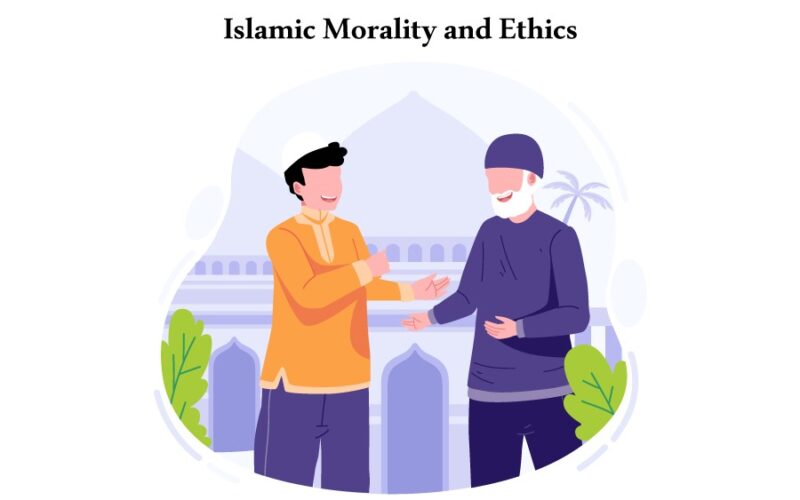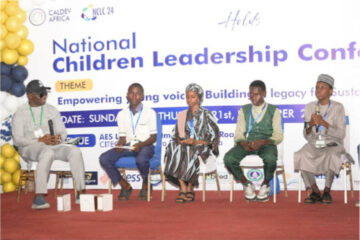By Khadijah Husna Abdulhameed
In the contemporary world, where moral values are often compromised and ethical standards are challenged, adhering to Islamic principles becomes increasingly challenging. However, the teachings of Islam, as derived from the Quran and Hadith, offer a steadfast guide for Muslims navigating through morally decadent societies. This essay delves into the significance of holding onto Islam in such environments, drawing upon references from the Quran and Hadith to elucidate the ethical framework that provides Muslims with strength and resilience in upholding their faith.
The Quranic Perspective: The Quran serves as the primary source of guidance for Muslims, offering profound insights into ethical conduct and moral rectitude. In Surah Al-Asr (103:1-3), Allah declares, “By time, indeed, mankind is in loss, except for those who have believed and done righteous deeds and advised each other to truth and advised each other to patience.” This verse underscores the importance of faith, righteousness, and mutual encouragement towards truthfulness and patience in the face of moral challenges.
Furthermore, the Quran emphasizes the significance of upholding justice, even in the midst of societal decay. In Surah An-Nisa (4:135), Allah commands believers to stand firmly for justice, bearing witness to the truth, even if it is against themselves or their loved ones. This injunction highlights the moral responsibility of Muslims to uphold justice and integrity, regardless of prevailing societal norms.
Moreover, the Quran illuminates the path of righteousness, even in the darkest of times. Surah Al-An’am (6:151) implores believers, “And do not approach unlawful sexual intercourse. Indeed, it is ever an immorality and is evil as a way.” This verse serves as a beacon of moral clarity amidst the pervasive normalization of illicit behaviors, reminding Muslims of the eternal prohibition against immorality.
Additionally, the Quran exhorts believers to maintain steadfastness and resilience in the face of moral adversity. Surah Al-Isra (17:81) reassures, “And say, ‘Truth has come, and falsehood has departed. Indeed is falsehood, [by nature], ever bound to depart.’” This verse instills hope in the hearts of believers, reminding them that truth will inevitably prevail over falsehood, regardless of prevailing societal norms.
Moreover, the Quran warns against succumbing to the temptations of worldly pleasures at the expense of moral values. In Surah Al-Baqarah (2:212), Allah reminds believers, “Beautified for people is the love of that which they desire – of women and sons, heaped-up sums of gold and silver, fine branded horses, and cattle and tilled land. That is the enjoyment of worldly life, but Allah has with Him the best return.” This verse serves as a reminder that the transient pleasures of this world should not distract believers from their ultimate purpose and ethical responsibilities. It also serves as a glad tiding for the reward in the hereafter.
Seeking knowledge and understanding is also crucial in maintaining one’s faith in a morally decadent society. By deepening one’s knowledge of Islam and its principles, Muslims can better navigate through the challenges they face and make informed decisions that align with their faith. This can include studying the Quran, attending Islamic classes, and seeking guidance from knowledgeable scholars.
The Hadith Perspective: In addition to the Quran, the Hadith, which comprises the sayings and actions of the Prophet Muhammad (peace be upon him), offers practical guidance for Muslims navigating moral challenges in society. The Prophet Muhammad (peace be upon him) exemplified moral integrity and resilience in the face of moral decay.
One of the central teachings of the Hadith is the importance of maintaining good character and conduct. The Prophet Muhammad (peace be upon him) said, “The most perfect believer in faith is the one whose character is finest and who is kindest to his wife.” (Tirmidhi) This Hadith emphasizes the significance of personal integrity and compassion in maintaining ethical standards, even amidst societal corruption.
Furthermore, the Prophet Muhammad (peace be upon him) warned against blindly following societal norms that contradict Islamic principles. He said, “Do not be like a feather in the wind, being blown forwards and backwards. And do not be like rotten wood, being thrown about, nor like a hypocrite who says one thing in front of people and another behind their backs.” (Sunan Ibn Majah) This Hadith encourages believers to remain steadfast in their adherence to Islam, resisting societal pressures that lead to moral compromise.
One of the central teachings of the Hadith is the importance of commanding good and forbidding evil. The Prophet Muhammad (peace be upon him) stated, “Whoever among you sees an evil, let him change it with his hand; and if he is not able to do so, then with his tongue; and if he is not able to do so, then with his heart – and that is the weakest of faith.” (Sahih Muslim) This Hadith underscores the moral responsibility of Muslims to actively oppose moral decadence and promote righteousness, even in the face of adversity.
In another Hadith, the Prophet Muhammad (peace be upon him) emphasized the significance of moderation and temperance in all aspects of life. He said, “The most beloved of deeds to Allah are those that are consistent, even if they are small.” (Sahih Bukhari) This Hadith highlights the importance of steadfastness and consistency in upholding Islamic values, even amidst societal pressures t o compromise.
In conclusion, holding onto Islam in a morally decadent society requires steadfastness, resilience, and adherence to the ethical principles outlined in the Quran and Hadith. By grounding themselves in the teachings of Islam, Muslims can navigate through moral challenges with integrity, righteousness, and compassion. As guardians of moral virtue in an increasingly complex world, Muslims find solace and guidance in the timeless wisdom of their faith, serving as beacons of light amidst societal darkness.
Khadijah is of Sweet Haven High School, Kano (This article won Group C category of Crystal Muslim Organization competition)







